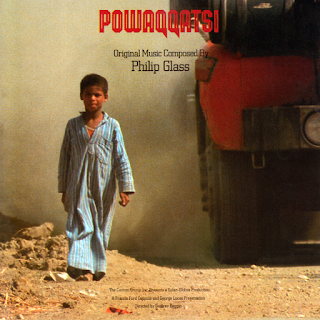Björk – The Music From Matthew Barney's Drawing Restraint 9
Style: Soundtrack, Modern Classical, Musique Concrète, Experimental, Minimal
Drawing Restraint 9 is a 2005 film project by visual artist Matthew Barney consisting of a feature-length film, large-scale sculptures, photographs, drawings, and books. The Drawing Restraint series consists of 19 numbered components and related materials. Some episodes are videos, others sculptural installations or drawings. Barney created Drawing Restraint 1-6 while still an undergraduate at Yale University and completed Drawing Restraint 16 in 2007 at London's Serpentine Gallery. With a soundtrack composed by Björk, Drawing Restraint 9 is an unconventional love story set in Japan. The narrative structure is built upon themes such as the Shinto religion, the tea ceremony, the history of whaling, and the supplantation of blubber with refined petroleum for oil.
Gratitude 4:59
Pearl 3:42
Ambergris March 3:57
Bath 5:07
Hunter Vessel 6:36
Shimenawa 2:48
Vessel Shimenawa 1:54
Storm 5:32
Holographic Entrypoint 9:57
Cetacea 3:12
Antarctic Return 4:18
For the composing of the soundtrack, Björk traveled to Japan to study ancient Japanese music. Several tracks are made with the sound of the shō, a Japanese instrument which contains 16 various reeds; Mayumi Miyata plays the shō on multiple compositions in the soundtrack and appears in the film playing the instrument. "Holographic Entrypoint" features a Noh score and vocal performance by Shiro Nomura, which complements a climactic scene in the film.
Alternative folk singer Will Oldham (also known as Bonnie 'Prince' Billy) is featured on the first track, "Gratitude", singing a letter from a Japanese fisherman to General Douglas MacArthur set to a melody by Matthew Barney. Björk brought "Nameless" back from her 2003 tour, and, with the help of Leila Arab, looped and edited it to create the track "Storm". Björk's vocals feature only on the tracks "Bath", "Storm" and "Cetacea". "Gratitude", "Shimenawa" and "Cetacea" feature harp player Zeena Parkins, who previously collaborated with Björk on her 2001 album Vespertine. "Hunter Vessel" was later sampled on her album Volta for the tracks "Vertebræ by Vertebræ" and "Declare Independence". The track "Storm" was featured in the 2012 video game Spec Ops: The Line.
Drawing Restraint 9






